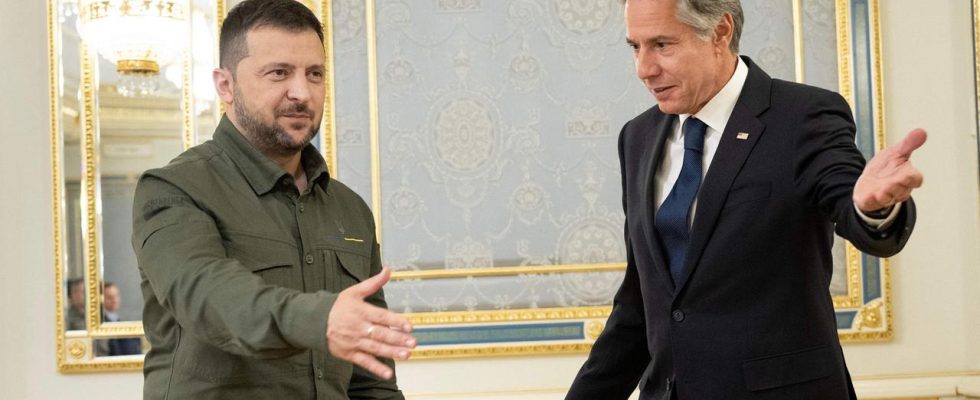In Ramstein, Ukraine’s supporters are discussing further arms deliveries today. The US Republicans have discovered military aid as a campaign issue – and are increasingly raising their voices against it.
So far, there have always been broad cross-party majorities in the US Congress for aid to Ukraine – including in July, when the far-right Republican Matt Gaetz introduced a motion against any further support for Ukraine in the House of Representatives. The application was rejected. Only 70 of 222 Republicans followed the party rebel from Florida. But the skeptical voices are getting louder, encouraged by Donald Trump: “I think Europe has to do more,” he said on NBC television last weekend. “The war affects the Europeans much more than it does us.”
Trump tried to support his argument with clearly exaggerated figures: The USA had already spent $200 billion on Ukraine, while the Europeans had only spent $20 or 25 billion, Trump claimed, and added: “That’s so unfair.” In fact, according to government figures, US aid to Ukraine amounts to around $115 billion. According to the Kiel Institute for the World Economy, the overall achievements of the Europeans now exceed the aid of the USA.
Other candidates for the Republican presidential nomination are also playing the anti-Ukraine card and appealing to protect the US borders against too much immigration – Florida Governor Ron DeSantis as well as biotech entrepreneur Vivek Ramaswamy: “I don’t want to get to that point “We’re coming to a point where we’re using up our military resources abroad instead of using them here at home to protect our own borders,” Ramaswamy said at the Republican presidential debate in late August.
“Urgency of the threat in the Pacific”
Skepticism about further aid for Ukraine is also growing among the population. A CNN poll in early August found that 55 percent of Americans oppose additional help. Among Republican supporters it was 71 percent. “Various polls have confirmed dwindling Republican support. The facts are undeniable,” said William Galston of the Brookings think tank on NPR radio.
The argument can be heard more and more frequently that it is not Russia but China that is the main enemy of the future from the US perspective – for example from Elbridge Colby, who worked in the Defense Department during the Trump presidency and is now running for office in a possible next Republican one Administration is warming up.
In Ukraine, “Europeans must take the lead” due to the “urgency of the threat in the Pacific,” says Colby. He means what he sees as a threat from China to attack Taiwan.
Ukraine support as a campaign issue?
There are also clearly audible pro-Ukraine voices among the Republicans – in the field of presidential candidates, for example ex-Vice President Mike Pence and Trump’s former UN ambassador Nikki Haley. “Aid to Ukraine accounts for less than three and a half percent of our defense budget,” Haley points out. “If you take the share of national economic power, eleven European countries spend more than the USA.” She warns that Russia and China are allies: “A victory for Russia is a victory for China. Ukraine is our first line of defense.”
A request from President Joe Biden’s government for further Ukraine support totaling $24 billion is currently before the US Congress. So far, the prevailing assessment is that this package of military, economic and humanitarian aid will pass Congress again.
But the longer the war lasts and the more heated the presidential election campaign in the USA becomes, the more difficult it is likely to become from the perspective of Ukraine supporters. Foreign policy expert Clifford Smith said on NPR: “It’s very possible that someone will become the Republican presidential candidate who is very skeptical about aid to Ukraine. That could be a disaster.”

